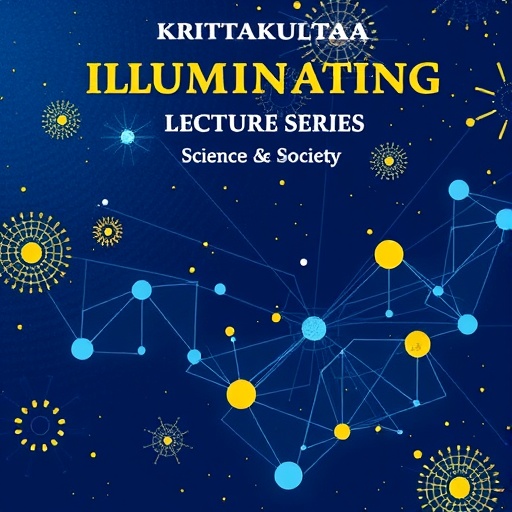In a groundbreaking lecture scheduled for September 8, 2025, at the Ateneo de Manila University, renowned scholar Rex Chien-Chou Hou will delve into the intricate poetic world of the late Philippine Sinophone poet Grace Hsieh-Hsing. The talk, titled “Tidal Poetics and Archipelagic Joy: Grace Hsieh-Hsing and the Taiwan–Philippines Literary Bridge,” promises to illuminate the complex ways in which Hsieh-Hsing transformed the geography of the Philippine archipelago into a dynamic metaphor for both artistic expression and cultural identity. This event represents a significant contribution to transnational literary studies, highlighting the poetic synthesis between local traditions and global cosmopolitanism, set against the turbulent backdrop of Cold War-era geopolitics.
At the core of this lecture is the concept of “tidal poetics,” a novel scholarly framework proposed by Hou, which captures the fluid, dynamic interplay between the physical and metaphoric landscapes of the archipelago. By closely analyzing Hsieh-Hsing’s trilingual poetry—written in Chinese, English, and Filipino—Hou demonstrates how poetic forms can mimic the natural rhythmic forces of tides, embodying a continuous oscillation between rootedness and dispersal. This tidal metaphor serves as an elegant literary mechanism that encapsulates the simultaneity of holding onto one’s cultural heritage while navigating the complexities of diaspora and transnational exchanges.
The significance of this lecture extends to its exploration of how Hsieh-Hsing’s poetics engage with the notion of “archipelagic joy.” This evocative term refers to an aesthetic and affective response to the fragmented yet interconnected nature of island geographies and cultures. Hsieh-Hsing’s poetry captures the vibrant multiplicity of Philippine life through vivid depictions of foodways such as balut, the traditional communal eating method kamayan, and everyday urban symbols like jeepneys. These elements articulate a lively cultural praxis that resists homogenization and instead celebrates hybridity, echoing broader Southeast Asian ideas of archipelagic consciousness.
Hou’s research draws heavily on Hsieh-Hsing’s posthumous publication, Floating Life, Poetic Shadows (2023), alongside her trilingual anthology Halo-Halo: Poems of the Philippines and contributions published in Taiwan’s Sunshine Collection. These texts serve as crucial sites for examining how regional Sinophone literature negotiates identity, memory, and political rupture. Importantly, Hsieh-Hsing’s literary activities straddled the diplomatic severance between Taiwan and the Philippines during the Cold War, positioning her work within a fraught geopolitical context marked by political and cultural fragmentation.
Beyond textual analysis, Hou situates Hsieh-Hsing’s work within the broader literary-historical networks that circumvented Cold War divisions. The Sunshine Collection’s “Philippine Sinophone Poetry Exhibitions” of the early 1980s, for instance, illustrate how cultural actors employed poetic and curatorial strategies to maintain channels of communication in a time of strained international relations. Hsieh-Hsing’s tidal poetics, therefore, resonate not only on an aesthetic level but also as acts of cultural diplomacy and resistance, weaving together disparate island communities through literary ties.
Moreover, the layered nature of Hsieh-Hsing’s language choice—her trilingual execution—reveals a profound engagement with questions of linguistic identity within Sinophone literature. By moving fluidly between languages, her poetry exemplifies a transcultural poetics that emerges from and responds to the sociopolitical histories of migration and colonization. This fluidity reflects a conscious aesthetic strategy that disrupts rigid national boundaries while forging a pluralistic literary terrain.
Hou, himself a poet and scholar affiliated with the Archipelagic Poets Society and a seasoned researcher in Sinophone and island literatures, offers a unique intersectional perspective that blends literary criticism with personal poetic engagement. His own contributions to the field emphasize the dynamic interplay between scholarly analysis and creative practice, making the forthcoming lecture a rare occasion to witness this synthesis in action.
The event is free and open to the public, underscoring the organizers’ commitment to accessible scholarship and cultural exchange. Attendees will have the opportunity to purchase related literary works and engage directly with Hou’s interpretations, situating the lecture as a focal point for ongoing dialogue around archipelagic literature, identity politics, and transnational artistic flows.
The vibrant cultural landscapes that Hsieh-Hsing invokes—embodied in her poetic imagery of food, transport, and communal practices—serve as potent symbols for thinking through questions of nationhood and belonging in postcolonial and diaspora studies. Her tidal poetics offer a deeply textured understanding of how literature can mediate between the local and the global, the past and the present, within contested geopolitical spaces.
In a world increasingly marked by fragmentation and displacement, Grace Hsieh-Hsing’s work and Rex Hou’s analytical framework offer refreshing insights into how artistic expression can foster connectivity and joy even amid political rupture. Their collaboration bridges temporal, linguistic, and cultural divides, underscoring literature’s potential as a force for cross-cultural dialogue and resilience.
By tracing Hsieh-Hsing’s trajectory—one that began at the relatively late age of 44 and blossomed into a rich body of work—Hou highlights the significance of artistic development as a lifelong, evolving process. This emphasis on fluidity and multiplicity resonates strongly within contemporary scholarly debates on identity formation and the politics of memory in Southeast Asia’s archipelagic settings.
Ultimately, “Tidal Poetics and Archipelagic Joy” advances a new paradigm for understanding Sinophone literature’s role in articulating complex histories and social realities. It challenges dominant literary canons by centering voices that navigate linguistic and cultural hybridity, geopolitical tensions, and the possibilities of creative reimagining in island worlds.
The lecture stands as a compelling invitation to rethink how poetry and poetics can be both profoundly localized and expansively transnational, rooted in specific geographic and cultural matrices while opening onto global conversations about identity, belonging, and artistic innovation.
Subject of Research: The development and implications of “tidal poetics” in the work of Philippine Sinophone poet Grace Hsieh-Hsing, focusing on her poetic treatment of Philippine archipelagic identity amid geopolitical shifts.
Article Title: Tidal Poetics and Archipelagic Joy: Grace Hsieh-Hsing and the Taiwan–Philippines Literary Bridge
News Publication Date: Scheduled for 8 September 2025
Web References: https://go.ateneo.edu/KKLectureHou; https://archium.ateneo.edu/kk
Image Credits: Ateneo de Manila University
Keywords: Sinophone literature, tidal poetics, archipelagic literature, Philippine Sinophone poetry, transnationalism, Cold War cultural networks, linguistic hybridity, Southeast Asian studies, island literature, cultural identity, literary criticism, poetry studies




